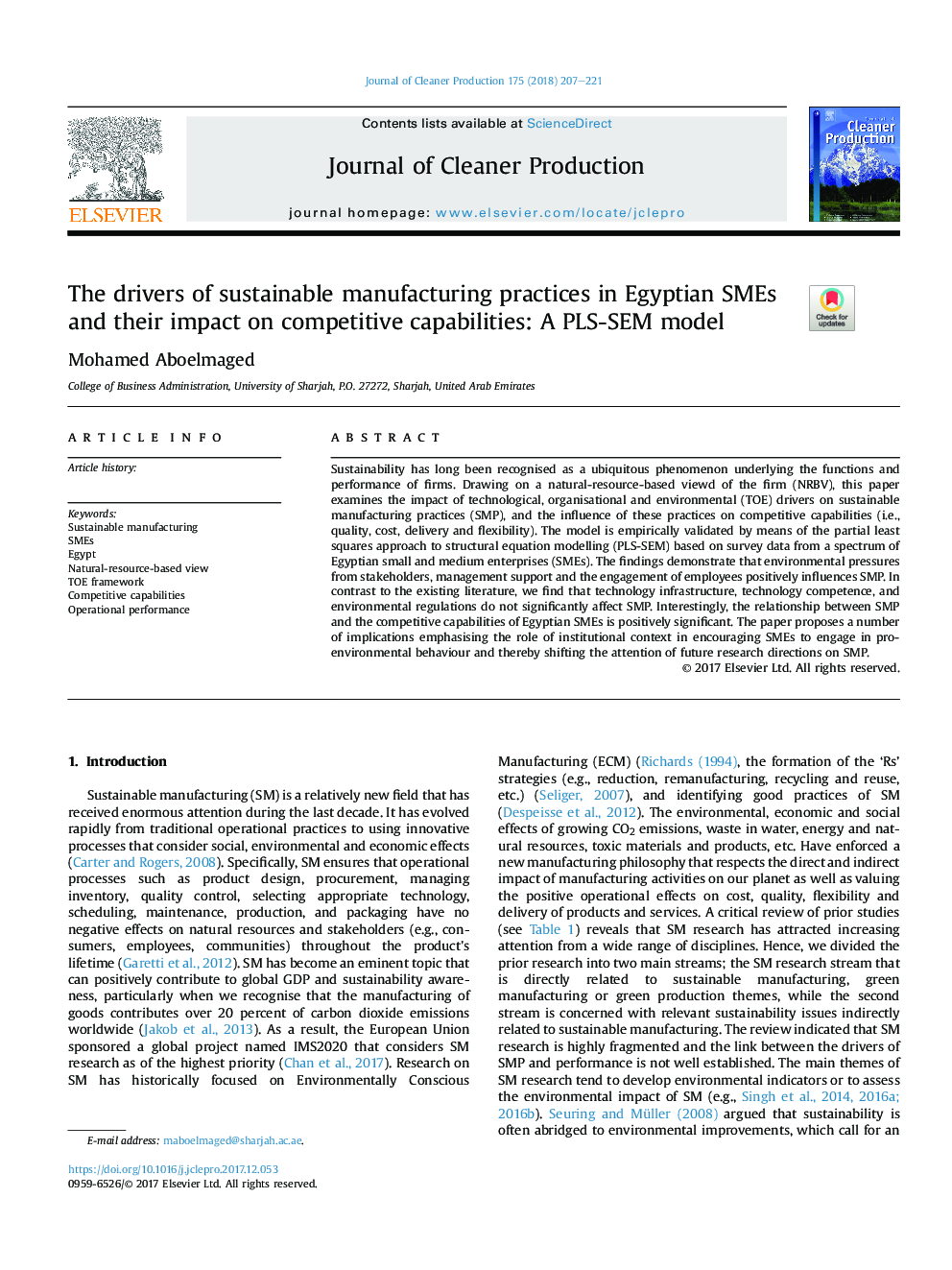| Article ID | Journal | Published Year | Pages | File Type |
|---|---|---|---|---|
| 8098963 | Journal of Cleaner Production | 2018 | 15 Pages |
Abstract
Sustainability has long been recognised as a ubiquitous phenomenon underlying the functions and performance of firms. Drawing on a natural-resource-based viewd of the firm (NRBV), this paper examines the impact of technological, organisational and environmental (TOE) drivers on sustainable manufacturing practices (SMP), and the influence of these practices on competitive capabilities (i.e., quality, cost, delivery and flexibility). The model is empirically validated by means of the partial least squares approach to structural equation modelling (PLS-SEM) based on survey data from a spectrum of Egyptian small and medium enterprises (SMEs). The findings demonstrate that environmental pressures from stakeholders, management support and the engagement of employees positively influences SMP. In contrast to the existing literature, we find that technology infrastructure, technology competence, and environmental regulations do not significantly affect SMP. Interestingly, the relationship between SMP and the competitive capabilities of Egyptian SMEs is positively significant. The paper proposes a number of implications emphasising the role of institutional context in encouraging SMEs to engage in pro-environmental behaviour and thereby shifting the attention of future research directions on SMP.
Keywords
Related Topics
Physical Sciences and Engineering
Energy
Renewable Energy, Sustainability and the Environment
Authors
Mohamed Aboelmaged,
